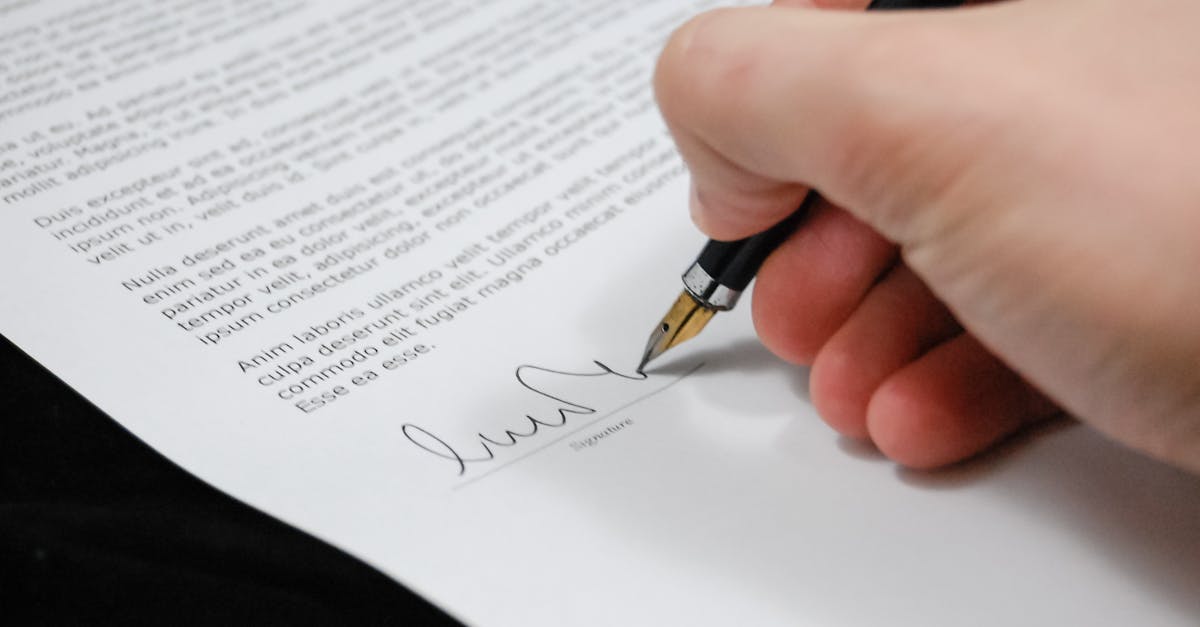
Overcoming Impasses in Mediation Negotiations
Reaching an impasse during mediation negotiations can be a challenging hurdle to overcome. It often leaves both parties feeling frustrated and uncertain about how to proceed. However, instead of viewing an impasse as the end of productive conversation, it can be reframed as an opportunity for creative problem-solving. When faced with a roadblock in negotiations, individuals involved in mediation can benefit from stepping back and reassessing their priorities and interests. By taking a collaborative approach and focusing on shared goals, parties can find innovative ways to move past the impasse and reach a mutually beneficial agreement. This shift in mindset can create new avenues for constructive dialogue and pave the way for successful resolution. Searching for "Negotiation and Mediation near me" can provide individuals with professional guidance and support in navigating impasses during mediation negotiations.
Furthermore, exploring alternative solutions and considering compromises can help break the deadlock and revitalize the negotiation process. Brainstorming creative options and being open to flexibility are essential strategies in overcoming impasses in mediation negotiations. By encouraging open communication and active listening, parties can gain a deeper understanding of each other's perspectives and interests, leading to a more collaborative and productive negotiation environment. Embracing a spirit of compromise and mutual respect can foster a sense of trust and cooperation between parties, ultimately facilitating progress towards a resolution. Seeking out expert advice and resources through "Negotiation and Mediation near me" can offer valuable insights and guidance on navigating impasses effectively and achieving successful outcomes in mediation negotiations.
Brainstorming and Compromise
Brainstorming in mediation involves the open exchange of ideas and solutions between all parties involved. This process encourages creativity and allows for the exploration of multiple possibilities to address the underlying issues. By fostering a collaborative environment, brainstorming in mediation can lead to innovative and mutually beneficial agreements that may not have been evident initially. It provides an opportunity for each party to contribute their perspectives and preferences, ultimately paving the way for compromise and resolution.
Compromise is a fundamental aspect of negotiation and mediation near me. It requires a willingness from all parties to give and take, finding a middle ground that satisfies everyone's interests to some extent. Through compromise, conflicting parties can move forward towards a solution that acknowledges each side's concerns and priorities. It helps in overcoming impasses and facilitates progress in the negotiation process, leading to agreements that are fair and sustainable in the long term.
Cultural Sensitivity in Negotiation Practices in Mediation
Cultural sensitivity is a crucial aspect of negotiation practices in mediation. Understanding and respecting diverse cultural perspectives is essential for fostering a cooperative and productive environment during mediation sessions. When approaching negotiations in mediation, recognizing cultural differences can help promote inclusivity and enable all parties to feel heard and valued. By acknowledging the uniqueness of each individual's background and beliefs, mediators can create a more harmonious atmosphere that encourages open dialogue and mutual understanding.
In the context of negotiation and mediation near me, cultural sensitivity plays a significant role in transforming potential conflicts into opportunities for constructive dialogue and resolution. Embracing cultural diversity within the negotiation process can lead to innovative solutions that leverage the richness of varied perspectives. By actively engaging with different cultural norms and practices, mediators can establish trust and build rapport with all parties involved, ultimately enhancing the effectiveness and sustainability of the negotiation outcomes.
Respecting Diverse Perspectives
Respecting diverse perspectives is a fundamental aspect of negotiation and mediation processes. In the context of conflict resolution, acknowledging and valuing the varied viewpoints brought to the table can foster a more inclusive and effective dialogue. When individuals in a negotiation setting genuinely listen to and understand the perspectives of others, they not only demonstrate respect but also pave the way for collaborative problem-solving. At the core of successful mediation is the ability to appreciate and integrate diverse perspectives, ultimately leading to more sustainable and satisfactory outcomes for all parties involved. It is essential for mediators and negotiators alike to cultivate an environment where different viewpoints are not only accepted but embraced as valuable contributions towards reaching mutually beneficial agreements. Negotiation and mediation near me can greatly benefit from a culture of respect for diverse perspectives, enriching the process and outcomes.
The Impact of Power Dynamics on Negotiation in Mediation
Negotiation and Mediation near me can often be influenced by power dynamics, which play a significant role in shaping the outcome of discussions. It's crucial for mediators to be attentive to power imbalances that may exist between parties engaging in negotiation, as these imbalances can hinder the process of reaching a mutually agreeable solution. When one party holds more power than the other, it can lead to unequal bargaining positions and difficulty in finding common ground.
In mediation settings, acknowledging and addressing power dynamics is essential for creating a fair and effective negotiation environment. Mediators must strive to create a space where all parties feel empowered to express their interests and concerns without fear of reprisal or marginalization. By fostering an atmosphere of respect and equality, mediators can encourage constructive dialogue and facilitate the development of solutions that cater to the needs of all involved parties.
Addressing Power Imbalances
Addressing power imbalances within the context of negotiation in mediation is crucial for ensuring a fair and equitable resolution for all parties involved. Power dynamics can significantly impact the outcome of negotiations, often leading to one party feeling marginalized or disadvantaged. By acknowledging and addressing these imbalances upfront, mediators can create a more conducive environment for productive dialogue and mutual understanding. Negotiation and Mediation near me can play a pivotal role in recognizing and mitigating power differentials to facilitate a more balanced and harmonious negotiation process.
Understanding the influence of power dynamics is essential in navigating complex negotiations in mediation effectively. Mediators have a responsibility to identify and address power imbalances to ensure that all participants have a voice and agency in the decision-making process. By promoting transparency and open communication, mediators can help level the playing field and empower all parties to engage in constructive dialogue and reach mutually beneficial agreements. Negotiation and Mediation near me can serve as a platform for fostering inclusivity and fairness in negotiation processes, ultimately leading to more sustainable and amicable resolutions.
FAQS
Do parties involved in mediation engage in negotiation?
Yes, negotiation is a key component of the mediation process as parties work towards finding mutually acceptable solutions with the help of a neutral mediator.
How do mediators assist in overcoming impasses during negotiations?
Mediators help parties overcome impasses by facilitating constructive communication, encouraging brainstorming of options, and guiding them towards reaching compromises.
Why is cultural sensitivity important in negotiation practices in mediation?
Cultural sensitivity is crucial in mediation negotiations to ensure that all parties' perspectives and values are respected, leading to more effective and inclusive outcomes.
How do mediators address power dynamics in negotiation?
Mediators address power imbalances by creating a safe space for all parties to express their views, ensuring that no one party dominates the negotiation process.
Can mediation help in bridging diverse perspectives during negotiations?
Yes, mediation promotes respecting diverse perspectives by fostering understanding, empathy, and collaboration among parties to reach agreements that are satisfactory to all involved.




